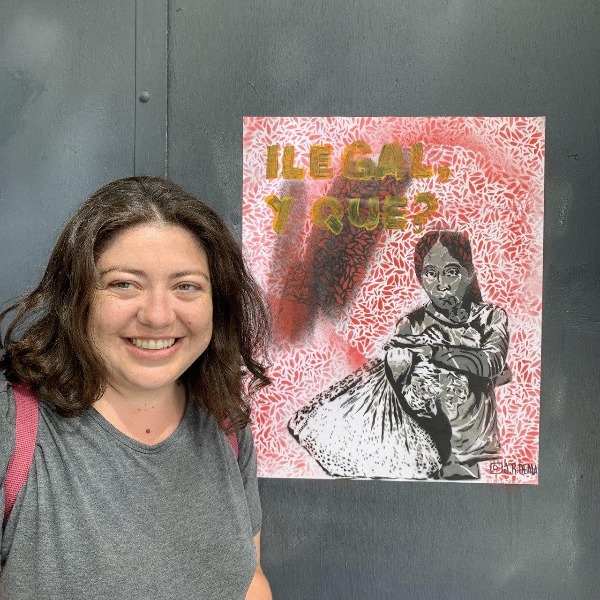The Master’s Degree in Social Policies and Socio-community Intervention at the University of A Coruña, Spain is a two-year master which offers a specialization route in international migrations for the second year of studies. Teaching has a strong multidisciplinary nature, as the team of professors is made up of specialists in Sociology, History, Law, Education and Anthropology. The Degree is supported by the ESOMI research group (Research Group in the Sociology of International Migrations).
For more information, please see the homepage: http://estudos.udc.es/es/study/start/4525V01
Specialization
Incoming EuMIGS Double Degree-students will follow a specialization in ‘international migrations’. Provided that the Master’s overall orientation is within social policies, the specialization in international migration has a particular focus on inequalities and processes of social exclusion. Besides, an insight into the Spanish and Galician migratory contexts is part of the contents of the specialization. The program for the specialization in ‘international migrations’ includes a traineeship in entities such as local public administrations, NGOs and migrant associations; an experience that can serve as a fruitful context for fieldwork in order to prepare the Master’s Thesis.
Tentative course program for the semesters 3 and 4
EuMIGS-students will be offered the following courses which are also attended by our local students:
- Semester 3 (= 30 ECTS)
- Integration and intercultural relations (4.5 ECTS)
- Migration policies and migration law (6 ECTS)
- History and theories of migratory movements (6 ECTS)
- The Spanish migration model (3 ECTS)
- Cooperation, migration and development (4,5 ECTS)
- Migrations and the labour market (6 ECTS)
Semester 4 (= 30 ECTS)
- MA thesis (12 ECTS + 6 accompanying ECTS credits on Research design and transfer)
- Traineeship (12 ECTS, this subject can be oriented towards fieldwork for the MA thesis)
Master thesis and examination requirements
EuMIGS-students will be offered all courses necessary to gain the credits and conditions for a formal admission to their master thesis and examination. These are the formal requirements for the process:
- Students apply for admission stating identity data, their selected thesis topic and their suggestions for two supervisors.
- One supervisor is required to be a member of the University of A Coruna, one of the two supervisors must be a professor. The final topic is laid down in agreement with the first supervisor. Both supervisors’ grades are of equal weight in the overall thesis grade.
- Examinees are required to participate in a colloquium in which they discuss the outline of their theses with their fellow students and supervisors at the beginning of the writing process. This colloquium replaces the defence after the completion of the examination process.
- Supervisors are expected to help the students refining their research topic and methodology and deciding what sources and literature need to be used; they offer advice in the analysis and interpretation of the data, review the student’s work, and provide him/her with feedback that allows improving it.
- The examination board formally appoints the supervisors and lays down the date for the submission of the master thesis which is six months after the formal admission to the examination. As a rule, the thesis is assessed by the supervisors within six weeks after its submission.
The formal requirements for the master thesis are:
- A cover page with thesis title, name of the master programme (MOPS), the student’s name, the submission date, the names of the supervisors
- A table of contents
- Main text (annexes are to be included on a CD adhered to the inner back page)
- A hand-signed declaration of authorship
- Admitted languages: Spanish, Galician and English
- Expected length: 80 to max. 100 pages.
The master thesis can be written by one author or by a group of authors when there are clearly defined sections stating the respective author’s exact contribution by paragraphs, pages or other criteria.
In case a thesis is assessed with a “fail”, the examinee is entitled to writing a new thesis on a different topic. As a rule, this topic is handed out three months after assessment of the first thesis. A second repetition is not permitted. There are further regulations in cases of deceit (such as plagiarism etc.).
The following table shows the MOPS-scale for final grades:
| Grades | Spanish grade description | English grade description |
|---|---|---|
| 9.0 – 10.0 | sobresaliente | excellent |
| 7.0 – 8.9 | notable | very good |
| 5.0 – 6.9 | aprobado | good |
| 0.0 – 4.9 | suspenso | fail |
For those theses graded 9.0 or higher, the examination board can consider adding the mention “with honours” (“matrícula de honor”) to the mark.
Fees
21.61€ per ECTS for the first-time inscription
26.68€ per ECTS for the second-time and successive inscriptions
Degree issuance fee: 123.10€
Compulsory administrative fee: 22.31€
Academic record issuance fee: 22.31€
Students under an exchange program can get a waiver for tuition fees, but it is compulsory for them to pay the administrative fee (22.31€), as well as the other two fees when/if they apply for their diploma or their academic record.
Contact and further details
EuMIGS academic coordinator

Antía Pérez-Caramés
MOPS Master Coordinator
EuMIGS administrative contact
